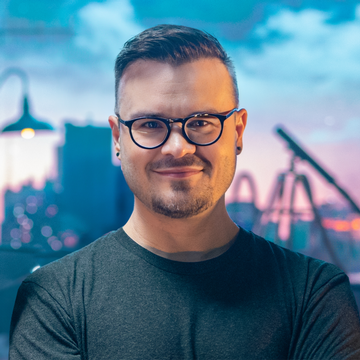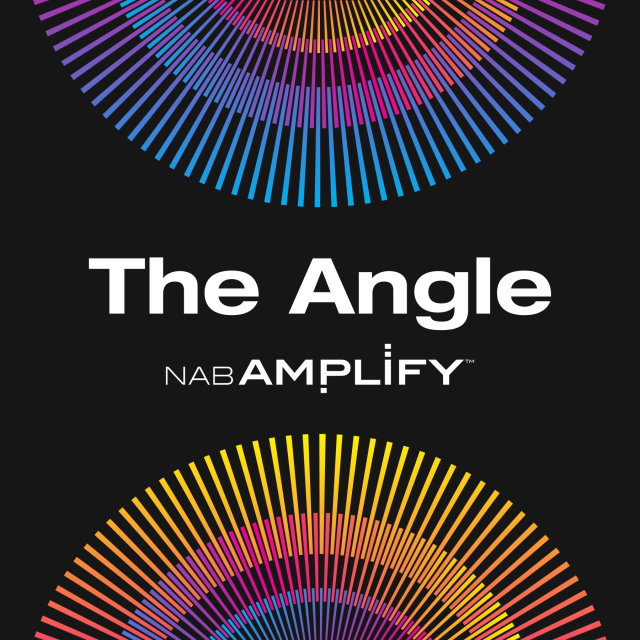
TL;DR
- Strada co-founder and CEO Michael Cioni highlights the transformative potential of “utility AI” in automating mundane production tasks rather than replacing creative processes in the film and television industry.
- Launched by the Cioni brothers, Strada focuses on leveraging AI to streamline production workflows, such as sound syncing and file organization, rather than automating creative tasks.
- Strada aims to democratize access to AI tools for the media industry, offering an open platform that contrasts with proprietary models, and emphasizes ethical standards in AI usage.
- Strada’s platform is designed to learn from users’ media over time, enhancing efficiency and offering personalized solutions, setting it apart from generic AI applications.
Driving back from NAB Show last year, Michael Cioni and his brother Peter Cioni made their decision to quit their respective jobs at Adobe and Netflix. “I didn’t see any AI at NAB — and that was an opportunity,” he said.
Unlike many in the industry, Cioni approached artificial intelligence from a different and, he believes, more pragmatic and valuable angle.

“When something hits any industry like a whirlwind, it’s a sign to pay attention because it may mean more than it seems,” he says. “The generative AI space may seem disruptive right now, but I believe that automating mundane tasks will likely prove most valuable in the long run. While generating content grabs headlines, it won’t necessarily revolutionize industries.”
By June 2023, the brothers had launched Strada, a new start-up focused on smoothing production workflow with AI tools. Named after the Italian for “street,” the company targets workflow tasks not creative tasks that AI will automate and accelerate.
“We are all getting overhyped with the generative side of AI,” the co-founder and CEO insists. “If you really think about it, of all the things people thought AI would transition or annihilate, like truck drivers, airline pilots, and the shipping industry, it turns out the first beachfront is the arts and entertainment. Nobody saw that coming. This disruption caught us off guard, leading to the current hype.”
While transport and logistics industries have long prepared for this, Hollywood was caught off guard. In that context, entrepreneur Tyler Perry’s decision to pull out of an $800 million project to build new soundstages — citing AI — seems hasty.
“I don’t think AI is going to effect our industry as much as that decision making implies,” Cioni says. “It is mundane tasks in manufacturing, not creative processes like writing or editing, will likely undergo automation. The backroom tasks such as organizing, archiving, or shipping are at risk of elimination by AI.”
He argues, “Editing’s backroom tasks, like transferring files or syncing audio, will vanish. This may lead to job losses, but it will enhance creative work by eliminating delays. Strada, our platform, automates tasks by employing AI engines. It offers features like automatic sound syncing, image detection, and translation for global content.”
While Strada is aimed at the tasks that can be automated to speed the creative process, its model still relies on the generations old production methodology of raw camera records into post for edit and grade.
“AI will never replace genuine human creativity,” Cioni insists. “Humans value authenticity over synthetic creations. AI-generated content lacks the ephemeral nature of real experiences, making it less treasured. Synthetic AI is a valuable tool, but it won’t replace human creativity.”
The economics of the existing production model may change but Cioni believes there will always be a fundamental need and therefore value for handcrafted filmed stories. Just as today we preface some stories with “based on true events,” we may see films in future presented as “crafted by filmmakers” to distinguish traditional, professionally lit, acted and camera recorded live action from generative AI, which, he says, “will always be synthetic.”
After all, celluloid is still prized by many filmmakers over digital and vinyl has made a resurgence in the age of Apple and YouTube Music.
“AI may change market dynamics, but there will always be a place for authentic, crafted experiences.”

Why subscribe to The Angle?
Exclusive Insights: Get editorial roundups of the cutting-edge content that matters most.
Behind-the-Scenes Access: Peek behind the curtain with in-depth Q&As featuring industry experts and thought leaders.
Unparalleled Access: NAB Amplify is your digital hub for technology, trends, and insights unavailable anywhere else.
Join a community of professionals who are as passionate about the future of film, television, and digital storytelling as you are. Subscribe to The Angle today!

